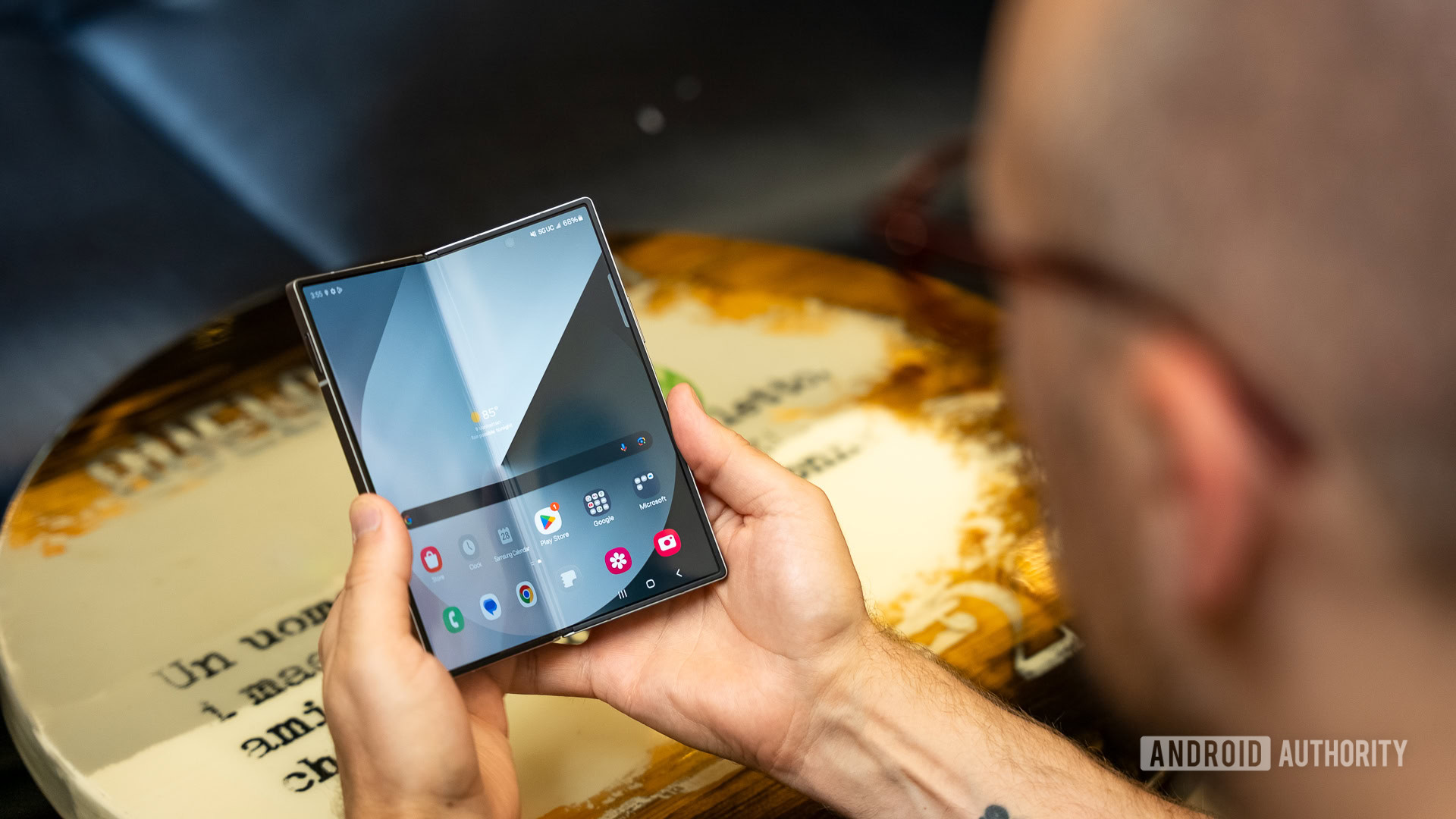Affiliate links on Android Authority may earn us a commission. Learn more.
Report: The rumored Galaxy Z Fold 6 'Slim' might still not be slim enough to compete
July 29, 2024

- A new report suggests Samsung’s Galaxy Z Fold 6 ‘Slim’ might not be as slim as expected, with a thickness in the 10-11mm range.
- The phone will reportedly omit the digitizer to achieve this thinner profile, sacrificing S Pen compatibility in the process.
- Despite these efforts, the Z Fold 6 Slim will still be thicker than Chinese foldables, which boast a thickness of sub-10 mm.
The recent launch of Samsung’s Galaxy Z Fold 6 brought yet another iterative upgrade to the foldable market, leaving tech enthusiasts craving more. Rumors of an “Ultra” Galaxy Z Fold 6 ‘Slim,’ positioned as Samsung’s answer to advanced Chinese foldables, have been circulating for some time now. However, a new report from The Elec suggests this upcoming model might not be the game-changer many hoped for. (h/t: 9to5Google)
The report indicates that the Z Fold 6 Slim might end up being only marginally thinner than the standard Z Fold 6, which is 12.1mm thick when folded. The new Slim version could fall in the “low to mid-11mm range.” This reduction will primarily be due to the removal of the digitizer, which is the layer that enables S Pen functionality on Samsung’s book-style foldables.
The report reiterates a rumor we’ve been hearing for a while now that the trade-off for a slimmer Samsung foldable will be the lack of S Pen compatibility. By eliminating the 0.3mm thick digitizer, Samsung should be able to bring the device’s folded thickness down to approximately 11.5mm.
Despite the slimmer profile, the Z Fold 6 Slim may still fall short when compared to Chinese foldables like the Xiaomi Mix Fold 4 and HONOR Magic V3, which are ~9.5mm and ~9.3mm thick, respectively. To make matters worse for Samsung, these competitors not only feature thinner designs but also pack in larger batteries and arguably better camera hardware.
Furthermore, we don’t expect the Z Fold 6 Slim to offer significant hardware upgrades over the standard Z Fold 6. Instead, Samsung is likely to focus its marketing on the device’s thinness.
The report highlights that Samsung’s hesitance to adopt an even thinner design stems from concerns about reliability. Utilizing new materials and designs to achieve a thinner form factor could not only raise component costs but also risk product defects, a blow Samsung likely wants to avoid.
With a rumored October release, Samsung anyway has limited time to make drastic changes with the Z Fold 6 Slim. Consumers in the US are unlikely to see this new foldable in stores, as the device will have limited availability, mainly in markets such as China and South Korea.
On the bright side, we can expect at least some of the design improvements that Samsung makes on the Z Fold 6 Slim to carry over to next year’s Z Fold 7. Apart from its slim profile, all we know about the Z Fold 6 Slim is that the device could offer an 8-inch internal screen and a 6.5-inch external screen, both slightly larger than the standard Z Fold 6.
Thank you for being part of our community. Read our Comment Policy before posting.